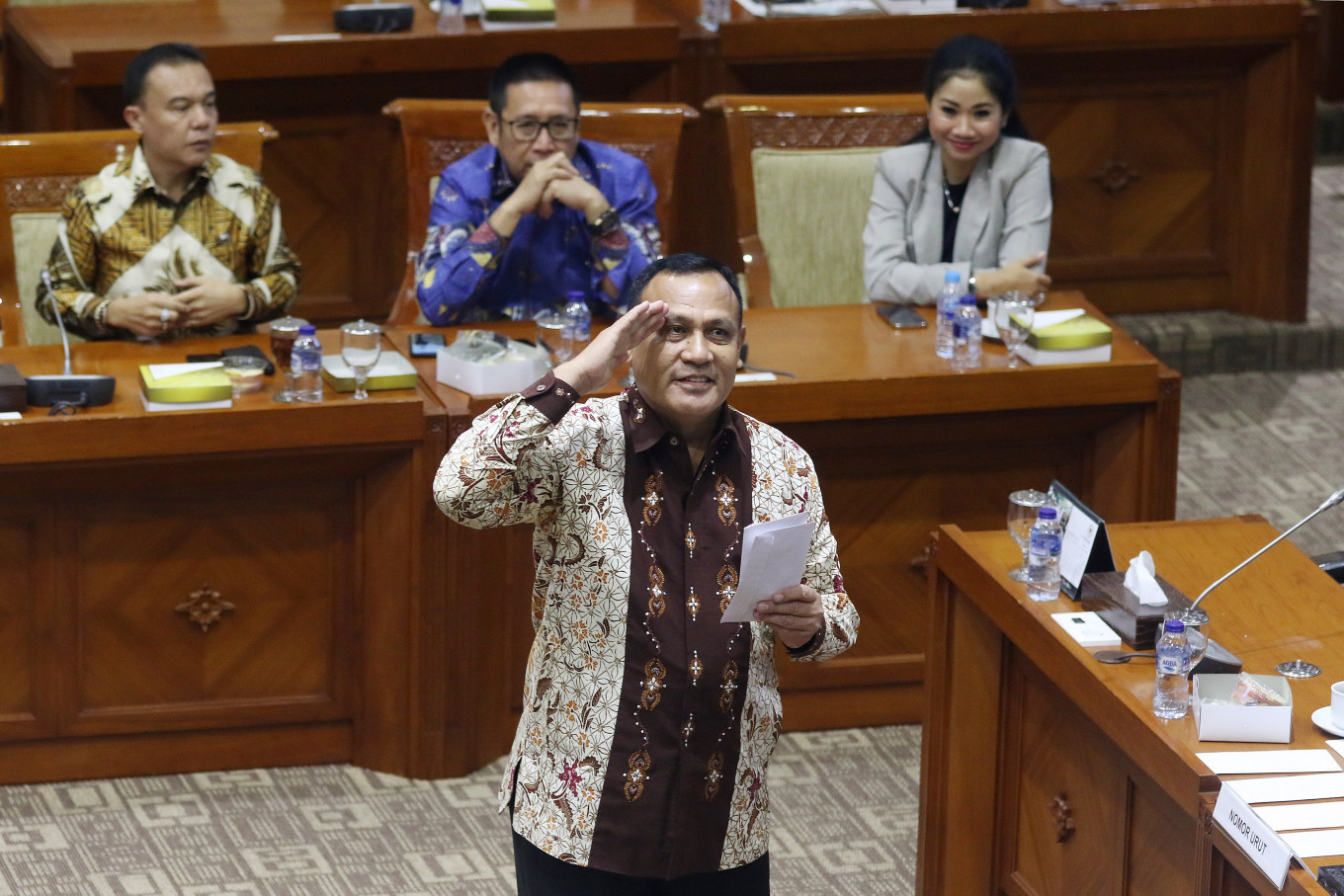Popular Reads
Top Results
Can't find what you're looking for?
View all search resultsPopular Reads
Top Results
Can't find what you're looking for?
View all search resultsThe KPK bureaucratized
Change text size
Gift Premium Articles
to Anyone
T
he amended Corruption Eradication Commission (KPK) Law is widely resented for weakening the commission – once the icon of the country’s fight against graft. The new law has reshaped the body into yet another arm of the state bureaucracy.
The legislation adds an additional administrative layer through the creation of a powerful supervisory council, whose members answer to the President. Further, it changes the employment status of KPK staff to that of civil servants, a process that is still underway. In short, the KPK is losing the independence that used to characterize it and that won it the trust of the public.
To complete the institution’s bureaucratization, the KPK leadership issued a regulation earlier this month on organizational and work procedures at the commission. It mandates the formation of 19 new departments or positions, while removing three existing ones.
KPK deputy chief Alexander Marwata claimed the new structure would increase the effectiveness and efficiency of the KPK, in line with Articles 6 and 7 of the law, which address the prevention of corruption, the treatment of perpetrators and the development of educational programs.
The new departments include a directorate of educational networks, a directorate of familiarization and anticorruption campaigns, a directorate of community participation development, a directorate of anticorruption education and training, a directorate of anticorruption for business entities and a directorate of regional coordination and supervision for regions I to V.
This unwieldy restructuring runs counter the normal practice, which is the paring down of complex organizations and the elimination of red tape to speed up work flow. At the end of the day, efficiency results in the reduction of operational costs.
Not only will fattening the KPK further slow, rather than accelerate, the commission’s work, it will also demand a budget increase. Although the government has shown some commitment to bureaucratic reform and efficiency, the KPK has opted to revive the old spirit of bureaucratization.
The new structure will allow the commission to hire special staff members, which in many ministries and government agencies are recruited from the inner circles of those in power. KPK leaders may replicate such a practice because the law does not forbid it.
That bureaucratic culture has crept into the KPK should not come as a surprise. The commission has allocated funds for the procurement of luxury cars for chairman Firli Bahuri and his four deputies next year. Such allowances, which have not previously typified the KPK, are the trademark of the bureaucracy, even though they have nothing to do with performance.
Both the government and the House of Representatives have approved the bureaucratization of the KPK, along with the expanded budget to pay for it, simply because they were the ones who designed today’s KPK through the controversial revision to the KPK Law.
Truly, the KPK is no longer the extraordinary body the nation so badly needs to combat the extraordinary crime of corruption.










